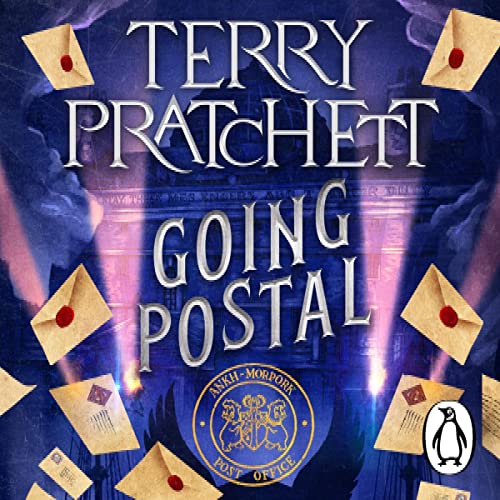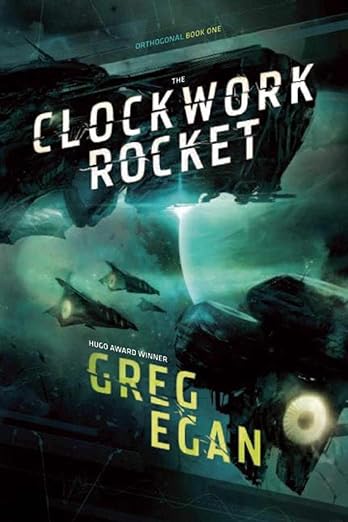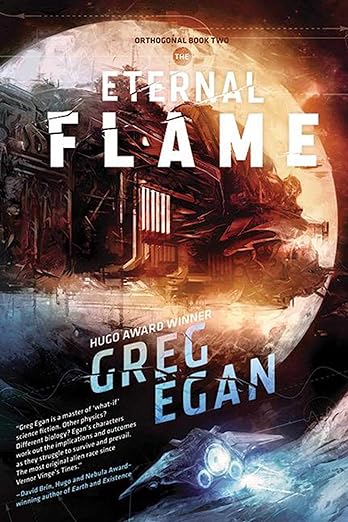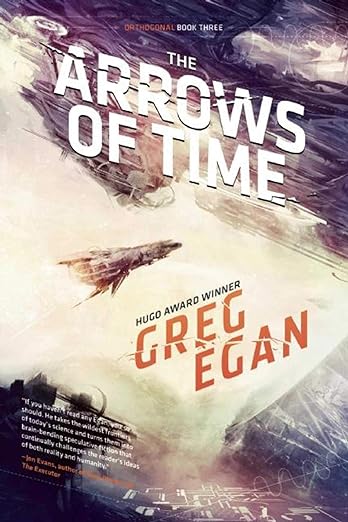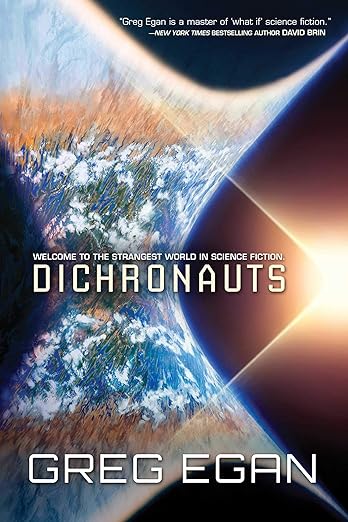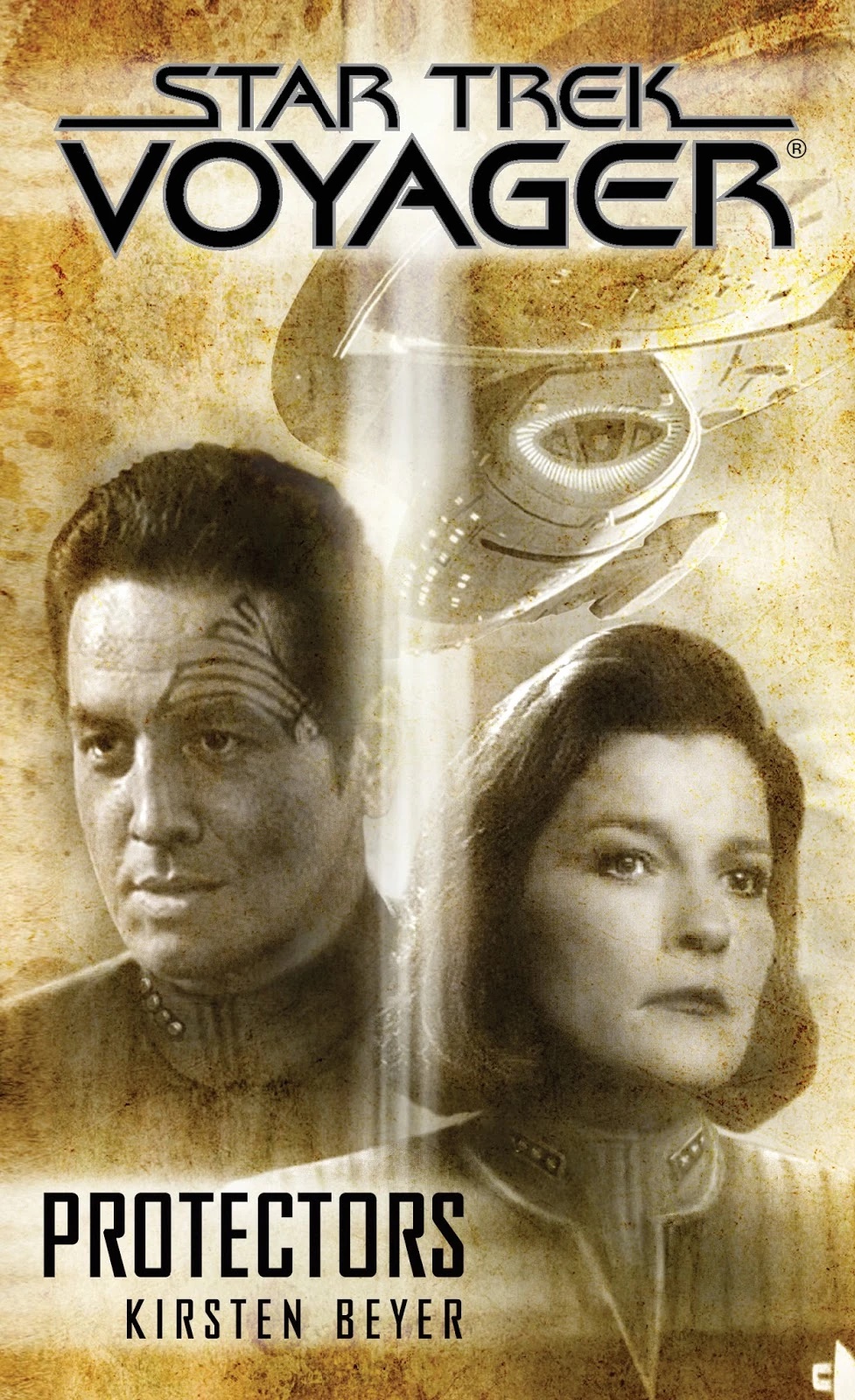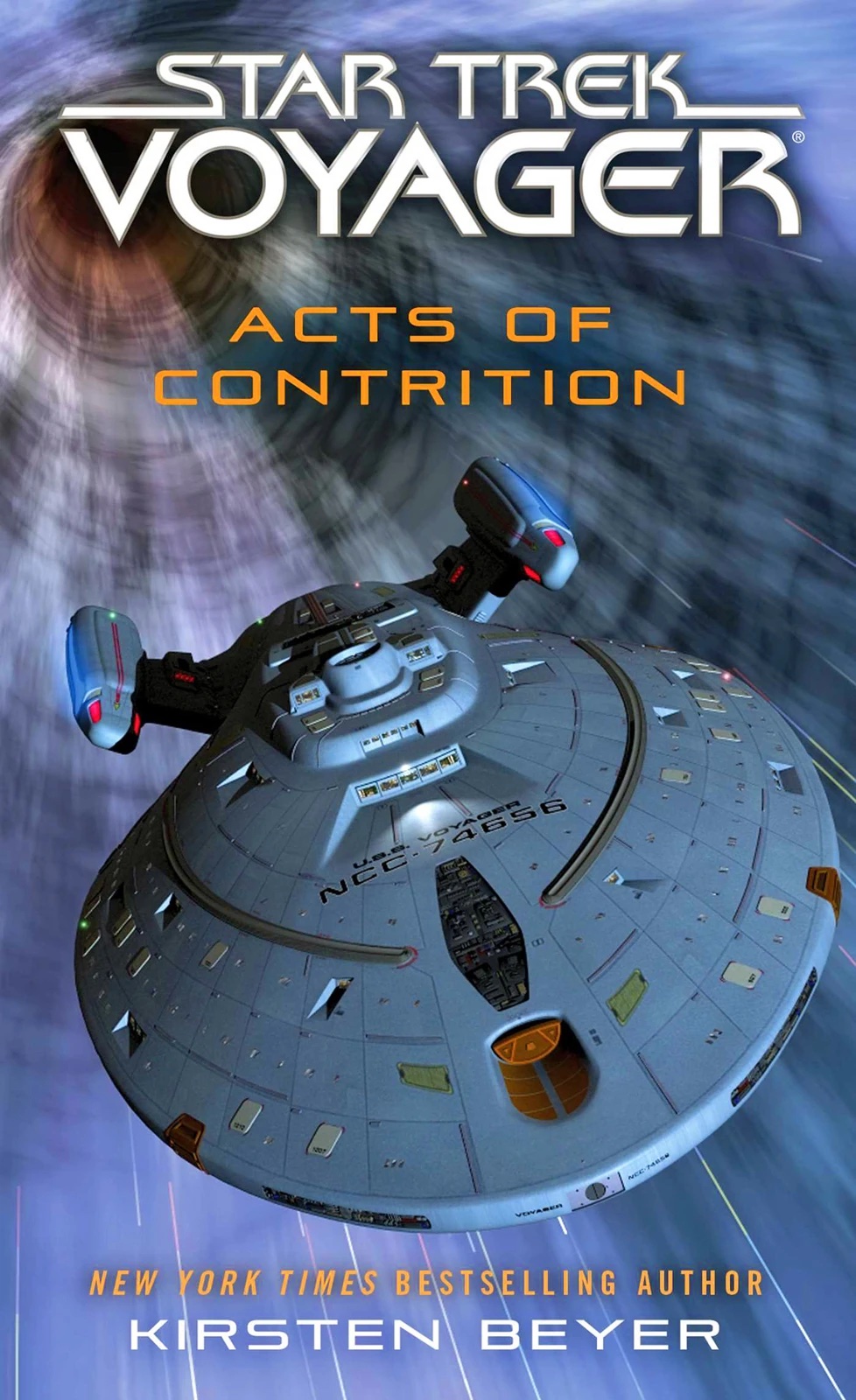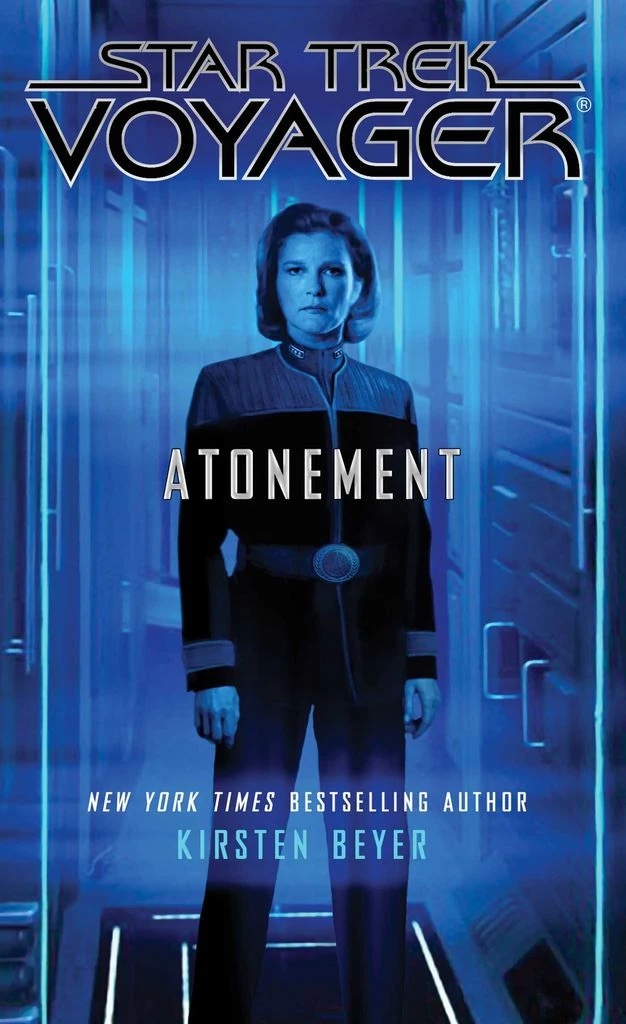I was inspired to write this review after watching Christopher Nolan’s movie Tenet. The central idea of Tenet is explored in the Orthogonal series (amongst many other things) but with more rigor and detail. As such, this review contains spoilers about the premise of Tenet. I won’t cover the details of Tenet’s plot, but if you were already going to watch Tenet, do that first.
Despite ostensibly being a review, this is mostly a piece designed to persuade you to read these books. It contains a fairly detailed explanation of the initial premise for the book (while avoiding spoilers for the plot), because talking about the things that are good is difficult otherwise.
Tenet
The movie Tenet follows in the wake of Interstellar by taking a confusing scientific concept and creating a movie that can be compelling for a mainstream audience. In Interstellar this was the idea of time dilation, in Tenet it is the idea of the “arrow of time”, and whether, perhaps, it is not as immutable as it seems.
The one line conceptual spoiler for Tenet is the following: there are machines that allow people and objects to travel backwards in time, while in the same space as people traveling forwards. Interactions between normal people and “inverted” people are strange and unintuitive.
In the movie, the details of “how” are basically ignored. And although the plot is clever and demonstrates much of the oddness that would be present, there is little detail.
Riemannian space
The premise for Orthogonal is a simple change to a single formula that defines the geometry of space-time. There is a detailed explanation by the author himself, but a summary is as follows:
- In two dimensional space, the distance between two points can be found using the Pythagorean theorem:
d = √(x² + y²), where x and y are the differences in the points’ positions in the x-axis and y-axis respectively.
- A very similar formula also works for three (and higher) dimensions:
d = √(x² + y² + z²).
- General relativity combines time and space together to form a single thing called spacetime.
- It is possible to calculate the “distance” between two points in spacetime. However, in this case the formula features a minus sign:
d = √(x² + y² + z² - t²).
This kind of spacetime is described by the author as “Lorentzian”. That minus sign is a consequence (or a cause, depending on your philosophy) of the speed of light being constant, and appears to describe our universe.
In the universe of Orthogonal however, the spacetime is “Riemannian”. That is, the distance between two points in spacetime is just: d = √(x² + y² + z² + t²).
This is summarized by saying the universes have metrics of +, +, +, − and +, +, +, + respectively.
The Arrow of Time
This small change has a lot of consequences. The biggest is that there is no longer a universal speed limit. You can go as fast as you want, even reaching a sort of infinite velocity. Just like in our universe there is time dilation at high velocities. At “infinite velocity”, time stops passing completely for a stationary observer. In the universe of Orthogonal however, if you were to continue accelerating you would find that time has started to progress backwards for you, relative to a stationary observer.
The exact mechanics of this may sound confusing, but are explained well in the book, and it more detail on the author’s site.
An actual review
With all the preliminaries out of the way, it’s time to explain why I think Orthogonal is so good. It basically does three things, and it probably could have stopped at the first one and still have been good.
1. Hard sci-fi with a relevant plot
The story is “hard sci-fi”. It has a universe that has solid rules that are as scientifically rigorous as possible and tries to avoid deviating from them. In order to also be a good sci-fi story though (as opposed to just good science), it also needs a plot that allows the reader to explore that universe.
Orthogonal presents the main characters with a world ending disaster. Not a terribly unique idea in the abstract, but in this case the disaster is one that could only happen in the Riemannian spacetime it presents.
Very quickly, the characters devise a plan to avert disaster. In the best traditions of disaster movies, it initially sounds crazy, but it just might work. And like the disaster itself, the proposed solution would only be possible in Riemannian spacetime.
2. Explore some further detail of the universe
Orthogonal is a trilogy of novels, spanning a significant time period. A lot of less apocalyptic consequences of Riemannian spacetime are explored. One of the more surprising is a running story of social development.
In the world of Orthogonal, women are not treated well. The way this manifests is very similar to our own world (so similar that it reminds me of classic allegorical Star Trek episodes). However the reason for the treatment in the story is, again, something that could only happen the world of Orthogonal (and is in fact a direct result of of the physics possible in Riemannian spacetime).
3. First principles
The final thing Orthogonal does, and the thing that takes the story from being “good” to being absolutely staggering, is how the details of the world are presented.
It starts in a world with a similar level of technology to us at the beginning of the 20th century. The author makes no overt attempt to explain the world narratively. For the reader it appears initially that the characters inhabit a world that behaves very differently to our own for no reason. But, the main characters in the story are striving for knowledge (after all they soon have a world ending disaster to avert), and so they start to learn how the world works.
As the plot develops over several generations, we follow scientists and engineers as they untangle the physics of the universe. We learn with them as the details of how the Riemmannian equivalents of electromagnetism, thermodynamics, relativity and quantum mechanics work.
That is the what makes Orthogonal really special. Not only working out how this strange universe works, but coming with a plausible way that characters in the universe might be able to work it out for themselves.
Conclusion
Stephen Hawking said that he was warned every equation added to a popular science book would halve the number of sales. Despite being a work of fiction, much of Orthogonal feels like a popular science book but the author has not let such an idea concern him. It is full of equations and diagrams. I wouldn’t say it is impossible to enjoy the book if you chose to ignore them (or at least not completely engage with them), but you would be missing out on a lot.
If, on the other hand, that kind of detailed explanation appeals to you, there is a site (all created personally by Greg Egan himself) dedicated to providing way more detail on all the physics and maths explored in the book.
Orthogonal is hard sci-fi. Conceptually it may be the least accessible of Egan’s works. It is, however, spread over three novels to avoid overwhelming the reader and plenty of time is dedicated to exploring how the characters deal with this world, and that can be enjoyed independently of understand why and how it works.
Dichronauts
Actually, the least conceptually accessible work from Greg Egan is probably Dichronauts, a story set in a universe with the metric +, +, −, −. That universe is so weird that you can’t turn past ninety degrees, and as you get closer to it, you stretch towards infinity.
